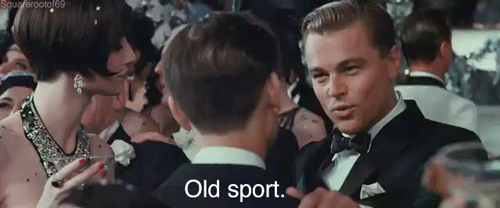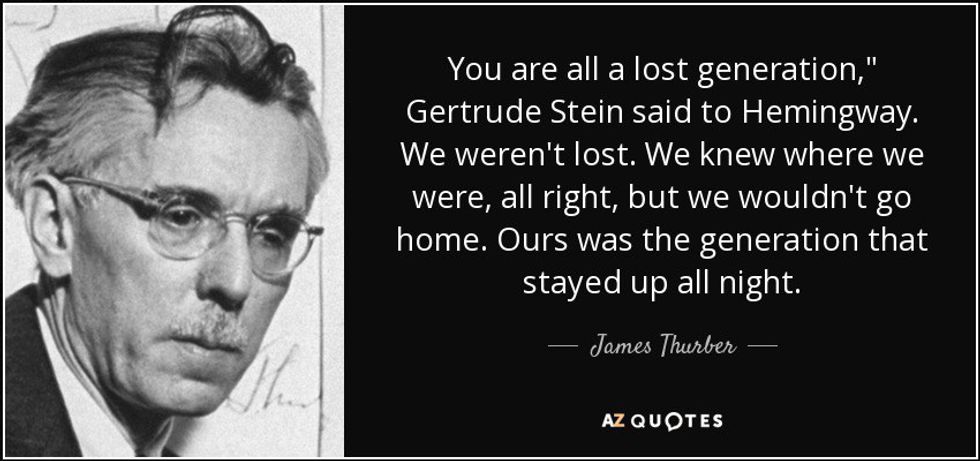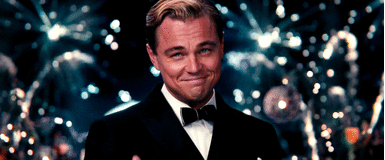If you have been through the United States' public school system, there is probably a large chance you have read "The Great Gatsby" by F. Scott Fitzgerald. A book written to represent the American Dream and the 1920s has been deemed a classic in 20th century literature. Fitzgerald, who is one of the most iconic writers of all time, was 29 years old when he created Jay Gatsby's world. Though "The Great Gatsby" is definitely Fitzgerald's most famous work, he has written several other books and short stories that display how talented he is. Writing his first book "This Side of Paradise" in his very early 20s and continuing on with other works such as "The Beautiful and Damned," "Tender is the Night," and "The Love of the Last Tycoon," which he was in the middle of writing before dying of a sudden heart attack at age 40, Fitzgerald served as one of the most influential writers of his time. Plagued with scandal, alcohol, commercial failure, and the declining mental health of his wife Zelda, Fitzgerald still managed to create beautiful stories with intricate characters. If you couldn't already tell, Fitzgerald is one of my favorite writers and I thought I would set aside some time today to honor him with a few of my favorite quotes:
"'Let us learn to show our friendship for a man when he is alive and not after he is dead,' he suggested. 'After that, my own rule is to let everything alone.'" ("The Great Gatsby")
"...then there was something gorgeous about him, some heightened sensitivity to the promises of life, as if he were related to one of those intricate machines that register earthquakes ten thousand miles away." ("The Great Gatsby")
"This was because she knew few words and believed in none, and in the world she was silent, contributing just her share of urbane humor with a precision that approached meagerness." ("Tender is the Night")
"'I want to give a really bad party. I mean it. I want to give a party where there's a brawl and seductions and people going home with their feelings hurt and women passed out in the cabinet de toilette. You wait and see.'" ("Tender is the Night")
"He sometimes looked back with awe at the carnival of affections he had given, as a general might gaze up a massacre he had ordered to satisfy an impersonal blood lust." ("Tender is the Night")
"Dick Diver looked at her with cold blue eyes; his kind, strong mouth said thoughtfully and deliberately: 'You're the only girl I've seen for a long time that actually did look like something blooming.'" ("Tender is the Night")
And, obviously:
I know I quoted only two of his books, but just from that, isn't it obvious how beautiful of a writer Fitzgerald was? While he was alive, both "Gatsby" and "Tender is the Night" were commercial failures, meaning that they did not sell well in stores. Though Fitzgerald was usually met with critical acclaim, the impact of his work did not pick up until his generation had passed over. Fitzgerald was able to perfectly illustrate the values and culture of people during the 20s, something we can all appreciate nearly 100 years later. The 1920s was full of jazz, flappers, and parties, representing the U.S. at it's height before sharply declining into the 1930s. Stuck between World War I and the Great Depression, the 1920s was a decade of prosperity intertwined with detachment. Fitzgerald, along with some chill pals like Ernest Hemingway and T.S. Eliot, dubbed themselves as the "Lost Generation." Defined by Encyclopedia Britannica, "the generation was 'lost' in the sense that its inherited values were no longer relevant in the postwar world and because of its spiritual alienation from a U.S. that, basking under Pres. Warren G. Harding's "back to normalcy" policy, seemed to its members to be hopelessly provincial, materialistic, and emotionally barren." The people who identified themselves as members of the Lost Generation created amazing literature and art that serve as ways to teach later generations about what life was really like during this unique era. Fitzgerald was no exception to this, being one of the key contributors to this elite circle of writers.
Though I definitely don't consider myself to be even close to Scotty Boi's level of mastery, every time I read his work I feel inspired to create some wildly gorgeous world within a Word document. Whether you like reading or not, if you took the time to read "Gatsby" in high school you probably were impacted in some way. Some people can't stop staying "old sport," some people develop a strong hatred towards the Buchanans and others are simply in awe of the green light. No matter what it is, it's impossible to read Fitzgerald's work without taking something away from it. That type of thing is usually the goal for any writer who gets their work published, and Fitzgerald did it every time. He created art and was a work of art in himself. He created stories of love and loss that were so realistic, they were the 1920s equivalent to a Drake song today.
Here's to you, F. Scott Fitzgerald, for inspiring romance and writers for many years to come.























